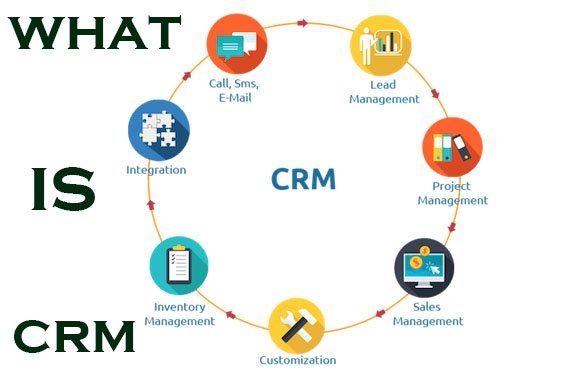Explore CRM software types: Operational, Analytical, Collaborative, Campaign, and Strategic. Each enhances customer management, from daily tasks to long-term relationships.
CRM for startups helps build strong relationships with clients. In simple terms, an effective CRM can be the best way to increase sales for your business. Have you ever wondered whether your startup needs a CRM system? You’re in the right place. I’ll provide an in-depth discussion on CRM software and its benefits. We’ll also explore the various types of CRM and the challenges they address
What is CRM?
Customer Relationship Management, commonly referred to as CRM, is one of the most vital business tools to invest in. At its core, CRM software encompasses all technologies and strategies centered around the customer. It directly improves the management of relationships with both existing and potential clients. If content is king, then the customer is the kingdom.
CRM software supports three main functions:
- Strengthening client interactions
- Promoting customer loyalty
- Retaining customers over time

What is CRM for startups or small business?
While the core components of CRM are similar for both large and small businesses, CRM for startups offers some unique advantages. One of the key factors influencing the choice of CRM software is cost. Unlike large corporations, small businesses often lack a dedicated team to evaluate software options. Keep reading to discover how small businesses can quickly evaluate the best CRM solutions.
For startups, the complexity and length of the implementation process play a significant role in decision-making. Since they may not have a dedicated team for custom deployment, a flexible CRM system is often the best fit. Additionally, a cloud-based CRM helps streamline operations and reduces technical hassles for startups.
Which are the types of CRM?
CRM software can be differentiated into 5 categories:
1.Operational CRM
This type of CRM is called operational because it supports day-to-day business activities such as marketing automation, sales, and customer service. Operational CRM software organizes contact information and creates workflows that automate various tasks. One of the key benefits of this CRM is its ability to consolidate leads from multiple channels. This is made possible through integrations with tools like MailChimp or Outreach, which help accelerate the sales cycle.
Popular operational CRM solutions include Salesforce and HubSpot.
2.Analytical CRM
As the name suggests, this type of CRM focuses on analyzing customer data. It includes information such as customer preferences, interests, points of interaction, and more. Analytical CRM leverages data mining techniques to uncover customer patterns and insights, helping businesses avoid the creation of inaccurate user personas. How amazing is that!
Two leading examples of analytical CRM software are Zoho Analytics and Salesforce Wave Analytics.
3.Collaborative CRM
You guessed it—this CRM is all about promoting teamwork. Collaborative CRM software is the ultimate tool for enhancing customer service. It achieves this by improving information sharing between departments. How many times have you struggled to respond to customer inquiries due to poor interdepartmental communication? Probably more than once!
For better client management and interaction, give Pipedrive or Copper a try.
4.Campaign Management CRM
In essence, this CRM software simplifies the management of your marketing or sales efforts. It provides valuable data and insights by integrating both operational and analytical CRM features. Unlike operational CRM, this type allows you to run and execute your campaigns via email.
If you think Active Campaign’s functionality aligns with your needs, it’s worth checking out.
5.Strategic CRM
CRM software with a strategic focus prioritizes clients above all else. It provides valuable customer insights that help you develop stronger, long-term relationships. How does this work? It customizes your interactions with customers, ensuring that each engagement is tailored to their needs and preferences.
Invest in this type of CRM if your business values long-term relationships over short-term marketing tactics.
CRM software enhances customer management by focusing on operational tasks, data analysis, collaboration, campaigns, and strategic relationships. Operational CRM automates daily tasks, Analytical CRM provides insights, Collaborative CRM improves teamwork, Campaign CRM manages marketing efforts, and Strategic CRM builds long-term customer relationships. Choose based on your business needs.

